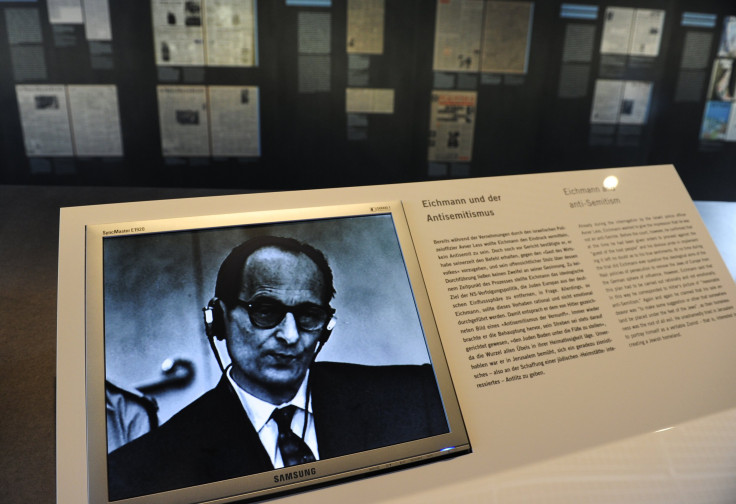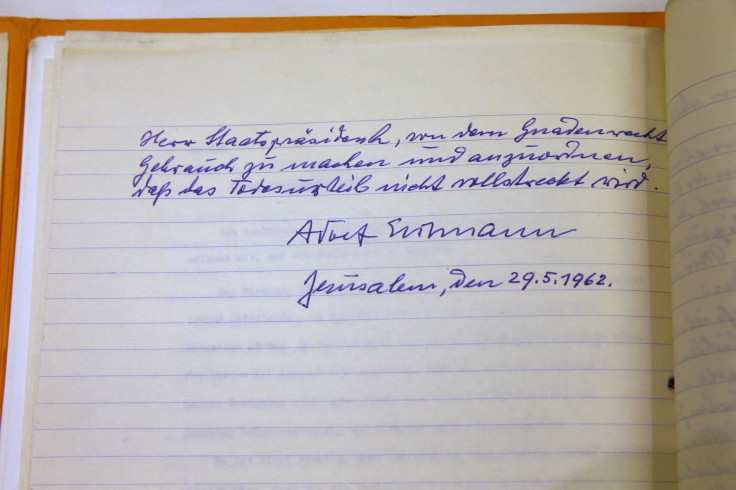Holocaust Mastermind Adolf Eichmann Claimed He Was A ‘Mere Instrument,’Newly Released Documents Reveal

Israel on Wednesday made public a handwritten request for clemency by the Nazi war criminal Adolf Eichmann, in which the key architect of the Holocaust protested his innocence over the mass killing of Jews. The letter, part of a tranche of several previously unpublished documents, was released by Israeli President Reuven Rivlin to mark the International Holocaust Remembrance Day.
“There is a need to draw a line between the leaders responsible and the people like me forced to serve as mere instruments in the hands of the leaders,” Eichmann reportedly wrote in his final plea, adding that he was only following orders.
“I was not a responsible leader, and as such do not feel myself guilty,” Eichmann wrote. “I detest as the greatest of crimes the horrors which were perpetrated against the Jews and think it right that the initiators of these terrible deeds will stand trial before the law now and in the future.”

Eichmann, who was captured by Mossad agents from Argentina — where he was living under a pseudonym — in 1960, was one of the architects of the Nazis’ “Final Solution,” which led to the deaths of six million Jews. He also oversaw the rounding up and deportation of Jews to death camps such as Auschwitz.
After being brought to Israel, Eichmann was charged with 15 counts of crimes against the Jewish people, crimes against humanity, war crimes and membership of a hostile organization. After an eight-month trial, during which 99 Holocaust survivors gave evidence, Eichmann was sentenced to death and hanged on in May 1962.
The letters released Wednesday were written by Eichmann just two days before he was hanged.
“Not a moment of kindness was given to those who suffered Eichmann's evil — for them this evil was never banal, it was painful, it was palpable,” Rivlin said Wednesday, while releasing the documents. “He murdered whole families and desecrated a nation. Evil had a face, a voice. And the judgment against this evil was just.”
In addition to the handwritten letter, several other documents, including requests for clemency from Eichmann’s wife, Vera, and his five brothers, along with the then Israeli president Yitzhak Ben-Zvi's letter to his justice minister rejecting the appeals, were also released Wednesday.
© Copyright IBTimes 2025. All rights reserved.






















